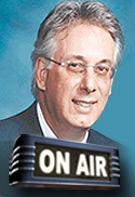
 Last week I wrote about going to the Eric Church show in Washington, DC, a couple of nights before Hurricane Sandy. Of course, I knew at the time that Sandy was churning her way to the East Coast after doing a great deal of damage in the Caribbean.
Last week I wrote about going to the Eric Church show in Washington, DC, a couple of nights before Hurricane Sandy. Of course, I knew at the time that Sandy was churning her way to the East Coast after doing a great deal of damage in the Caribbean.
I was in DC on Friday and Saturday and the weather was beautiful. Like most cynics, I thought that the forecasters were overestimating the potential damage. I mean, come on, who believes weather forecasters?
This is not news. They were right this time.
I got home to West Virginia early Sunday morning, and the newscasts were warning of snow as our contribution from Sandy. But Sunday was not a bad day and, after all, who believes weather forecasters?
Monday morning Sandy arrived and brought her cousin Frosty the Snow Devil.
Millions were surprised by the force of the storm, in conjunction with cold air from the north that dumped feet of snow on West Virginia and western Maryland. As I write this a week later schools are still closed, and thousands in West Virginia are still without power. The last number I heard about NY/NJ was that 3.5 million people are without power.
The stations that I work with here in West Virginia were all touched in some manner. Some for short periods of time and some for longer times. In most cases it was a loss of commercial power at transmitter and studio sites. Some of these sites are on top of mountains on the other side of scores of downed trees and drifts of snow. These roads up to the mountain tops are not easy to traverse in August, much less after storms.
The list of stations off the air included New York City and Washington DC—big markets, with redundancy in place in most cases. Yet this storm said, “Hah! I am the real king of all media.”
If you are in the radio business you know that silence is the worst sound. Radio people call it “dead air.”
Everyone jumps when there is dead air.
For no significant length of time were any of our home cities without service from at least one of our properties. If we had a problem with one signal, another in our cluster was serving the public. There were a dozen employees of West Virginia Radio Corp. that went way beyond the call of duty by trudging to snowbound sites to fill generators with fuel and helping clear roadways.
The FCC (not always a friend of radio) reported that broadcast radio performed better than cellular phone services, and that 25% of the cell towers in the area went out.
I didn’t experience any cell problems so I can’t tell you whether those who did are back online today.
There are still a lot of people without power. I heard from a number of listeners who went to their cars to listen so they could learn about shelters and where to find fuel.
Broadcast radio, like it always does, rose to the challenge and provided important information to those in harm’s way. So many in the radio industry have been asking cell phone manufacturers to include AM/FM in the phone. Maybe we would be better served investing in batteries that drive portable radios.
Join me in applauding the hundreds of radio engineers who worked their asses off to make sure the public was served in a time of need.
Just to be fair, not all broadcasters are to be applauded. I follow a particularly offensive internet radio host on Twitter. He and his listeners spent much of last week laughing at and berating East Coasters devastated by the storm. Treating their fellow Americans like dummies for where they live. This note from Karma: “I’m watching and listening.”
(The views expressed in this article are those of the author and do not necessarily reflect those of MusicRow)



